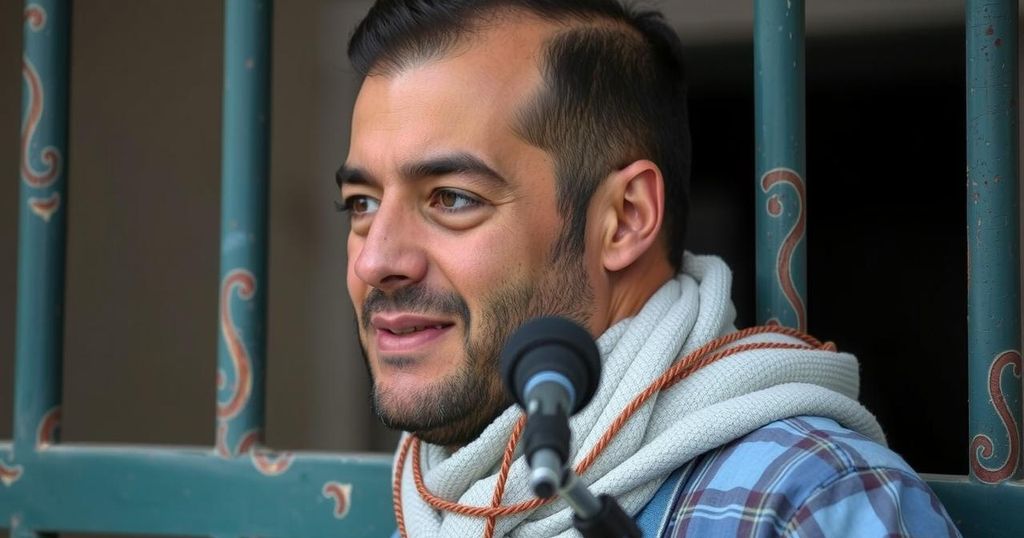Said Ait Mahdi, a Moroccan activist protesting the government’s earthquake response, has been sentenced to three months in prison and fined over $1,000. His charges include defamation, assault, and inciting unauthorized demonstrations following widespread protests after the September 2023 earthquake, which killed almost 3,000 people. Human rights advocates have condemned his arrest as a politically motivated attack on dissent.
In a notable legal development, Said Ait Mahdi, a prominent activist in Morocco, has been sentenced to three months in prison alongside a fine exceeding $1,000. His convictions stem from accusations of defamation, assault, and inciting unauthorized demonstrations, which are linked to his leadership in protests against the government’s ineffective response to the devastating earthquake that struck the region in September 2023. This seismic event resulted in the loss of nearly 3,000 lives and widespread destruction of infrastructure, including homes and health facilities. The government’s reaction to Ait Mahdi’s activism has drawn criticism from civil liberties groups, who characterize the charges as a punitive measure against dissent.
The context of this situation involves the response of the Moroccan government to the earthquake that occurred in September 2023, which caused a significant humanitarian crisis. The earthquake devastated numerous communities, prompting public outcry regarding the government’s relief efforts, perceived as inadequate. Protests erupted in various regions, fueled by frustrations among the citizens. Activist Said Ait Mahdi emerged as a central figure in these protests, advocating for accountability and better governmental action. His subsequent arrest and sentencing are viewed within the framework of Morocco’s contentious relationship with civil and political activism.
In summary, Said Ait Mahdi’s sentencing serves as a stark reminder of the ongoing tensions between governmental authority and civil rights in Morocco. The international community and human rights advocates are closely monitoring the situation, as it raises critical questions regarding freedom of expression and the political environment in the country, especially in the aftermath of significant national tragedies such as the recent earthquake.
Original Source: www.wdrb.com






